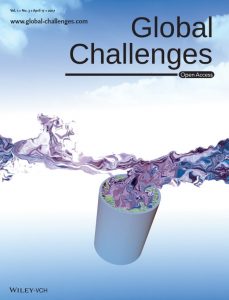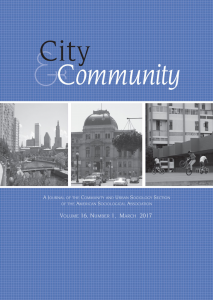How have scholars confronted the War on Drugs in the Philippines and what remains to be done?

The War on Drugs in the Philippines, a signature policy of then President Rodrigo Duterte, killed thousands of people, predominantly alleged drug users and street peddlers from poor communities. Paradoxically, it enjoyed huge support among Filipinos including the poor as reflected in various opinion surveys and in the electoral dominance of Duterte and his allies. Naturally drawn to this complex and intriguing anti-drug campaign and socio-political phenomenon, scholars asked questions like: how to “make sense” of the popularity of the extrajudicial killings; how the killings were changing or not changing various aspects of Philippine society; and importantly, whether and how the War on Drugs could be stopped. In important ways, the studies scholars made poked holes at the assumption that the War on Drugs simply made sense to Filipinos, and needed to be accepted, not explained, as expressing the popular will. Thus, scholars advanced critique of the War on Drugs. However, the scholarship was also replete with limitations including a general inability to see the light at the end of the tunnel.
In a new open-access article in Sociology Compass, we reviewed and analysed 140 scholarly materials on the topic published in the last six years coinciding with Duterte’s reign. We synthesised and assessed scholars’ contributions to critical understanding and practice that confronted the War on Drugs. As a result, our review also provided an agenda for future researchers of the Philippines’ War on Drugs as it continues to be implemented by the Marcos Jr. administration. In this blog article, we briefly share our main findings.
“Making sense” of the War on Drugs
In a large part of the literature on the War on Drugs, scholars were focused on theoretical explanation rather than action, i.e., on explaining or interpreting the killings as a political and social phenomenon. In this regard, the key concepts were those of populism (particularly penal populism) and morality (the so-called moral politics thesis). In the penal populism explanation, people’s anxiety over crimes and threats to their livelihoods lead to support for leaders like Duterte who vow to pursue security through any means necessary; in turn, leaders adopt punitive policies like Duterte’s War on Drugs because they anticipate it will be popularly supported by the people regardless of its actual effect on their security. Thus, ironically, the studies emphasise, people’s desire for positive change leads to policies that are possibly ineffective and deeply erode democracy. While a critical perspective, the penal populism explanation is limited. It does not examine the specific social actors and communities providing support and the specific material socio-economic interests being served by support for the War on Drugs; thus, it fails to confront the broad claim that “society” in general support violence. While it works well to explain Duterte’s appeal and helps connect the Philippine phenomenon with global trends, the concept of populism is less illuminative of other and newer aspects of the War on Drugs.
One question where the moral politics thesis has provided a complementary explanatory perspective is why poor people support killings of fellow poor people. The moral politics thesis posits that where critics of the War on Drugs only saw chaos and oppression of the poor in the killings, many poor people who supported the War on Drugs saw the creation of social order and self-transformation. In this cluster of scholarship, the focus is on poor people’s “tough love” morality, in turn explained as a rejection of phony liberal prescriptions to the poor, like citizenship education, in favour of the fear of being killed by police as the more believable mechanism for self-transformation. This is a critical perspective in that it exposed poor people’s support for killings as a deeper kind of self-oppression. It underscores the unspoken premise that poor people should give up on politics aimed at transforming economic conditions in favour of a neoliberal moral politics obsessed with self-transformation.
Documenting the actual impacts of the War on Drugs
Scholars of the Philippines’ War on Drugs also documented what the reality was on the ground. By contributing troves of evidence showing its actual impacts, scholars enable popular assumptions of the Philippines’ War on Drugs (such as that fear of killings lead to users’ moral transformation) to be empirically tested. Many studies showed drug use continued though police evasion tactics had become more costly and risky; and that there had been no clear impact on the crime rate. Many scholars accounted for the collateral damage, for example, the stigma suffered by orphaned children and increased police harassment of women sex workers. Like the proponents of the War on Drugs themselves, the authors of these studies continue the focus on users, peddlers and others who occupy the grassroots; thus, ironically, we know much more about the grassroots than the transnational level of the drug trade.
An important question going into the long-term implication or legacy of the War on Drugs is pursued in studies of the impact of the War on Drugs on the government’s COVID response. It asks how the War on Drugs precludes not only effective solutions to the drug problem but threatens the possibility for rational policy-making in general.
Challenging the hegemony of the War on Drugs
Besides explaining, interpreting and describing the reality of the War on Drugs, the scholarship also grappled with changing the existing policy and particularly stopping the killings. This is a less trodden though crucial line of critical scholarship. Various practical proposals had been suggested, ranging from calls on the previously influential Catholic Church to intervene more strategically to solutions under international law and involving international actors. Most writings in this vein argue that a more tolerant or liberal rights-aligned or harm reduction policy towards drug use would be more effective. But an intolerant and paternalistic belief in the necessity of forcing rehabilitation and moral transformation on users has taken hold in the Philippines, so that it seems necessary to challenge this hegemonic socio-cultural belief first. However, beyond the largely wishful and ironic thinking that such engagement could be meaningfully obtained at the level of community-based rehabilitation, there appears to be no takers of the decriminalisation option even among politicians opposed to the administration.
Other academic efforts, namely the Drug Archive and the Violence, Human Rights, and Democracy in the Philippines (VHRD) projects, are focused on private actors systematically collecting fairly credible and objective records of fatalities and incidents in the face of inaction and deliberate hurdles created by government agencies officially tasked with this purpose. In view of the general absence of measures enforcing accountability for the abuses in the War on Drugs, these academic and private efforts assume the nature of provisional steps that may become important should a reckoning be required in, say, a future truth commission or memorialisation initiative.
Research agenda
Scholars have contributed much to critique of the War on Drugs but several blind spots remain which future researchers may endeavour to fill:
- Beyond the War on Drug’s expressed justification by political leaders and supporters, what deeper material drivers account for its continuation?
- What political practices can challenge the dominance of neoliberal solutions that privilege self-discipline over real reforms? Can we delink politics from moral discourses, and if so, how?
- In describing the reality or actual impact of the War on Drugs, how can we de-normalize fixation with the grassroots? What should we know about the demand side and transnational level of the drug trade in the Philippines that could push our vistas in terms of critical understanding and intervention?
- What are the limitations of engagement with rehabilitation and the War on Drugs at the community level?
- Is international pressure indispensable, and if so, how may it be effectively mobilised?
References
Lamchek, J. S., & Jopson, T. (2024). Confronting the Philippines’ war on drugs: A literature review. Sociology Compass, e13209. https://doi.org/10.1111/soc4.13209
Authors
- Jayson Lamchek, Deakin University Law School, Deakin University, Melbourne, Victoria, Australia; University of New England School of Law, Armidale, New South Wales, Australia
- Teresa Jopson, Gender and Human Rights Adviser, Regional Validation Advisory Group (EMTCT HIV-Syphilis-HBV), Western Pacific Region, World Health Organization





1756-2589/asset/NCFR_RGB_small_file.jpg?v=1&s=0570a4c814cd63cfaec3c1e57a93f3eed5886c15)